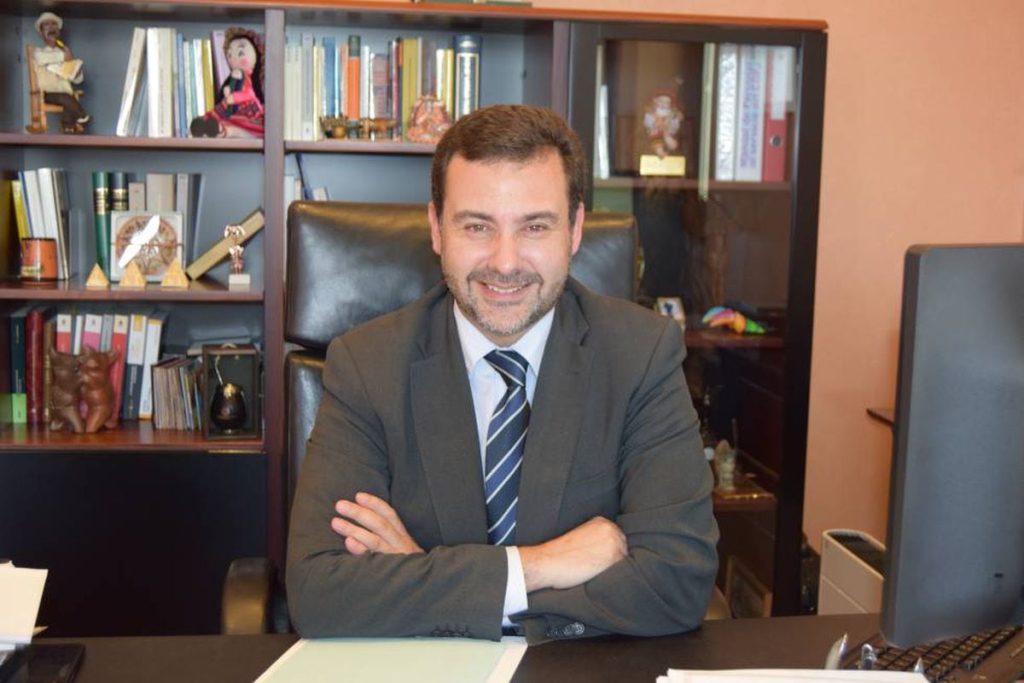The Director of the Judicial School, Jorge Jiménez Martín, resigned from his position a few weeks ago, a resignation that had not been made public until now, but has already been unanimously accepted by the permanent commission of the General Council of the Judiciary (CGPJ), the body to which the institution belongs, based in Barcelona, which coordinates the training of new judges. The resignation came after the plenary session of the Council, whose term expired in December 2018, discussed a point in February about the administrative situation of Jiménez Martín, who was acting in the role and, according to some members, did not meet the requirements of the law. Jiménez Martín has preempted a possible dismissal and has left the role of head of the school vacant, which, according to legal sources, is seen as an opportunity for conservative group members to appoint a female lawyer from the CGPJ to lead the institution from Madrid. Jiménez Martín’s relationship with the CGPJ, which he has held since July 2018, had been deteriorating in recent months, as confirmed by several legal sources and admitted by the director himself in a conversation with EL PAÍS.
Jiménez Martín has stated that he resigned “to protect the school” after realizing that the Council was questioning the legality of his tenure, which could end up affecting the functioning of the center, due to its dependence on the Council. Once his departure from the institution that coordinates training has been formalized, and he has been reinstated as an active judge, Jiménez Martín has sent a letter to the Council in which he, in a sarcastic tone, thanks the members for accepting his resignation and indirectly reproaches them for their treatment of the school in recent years. The departure of Jiménez Martín leaves the Judicial School headless, a vital center for the Judiciary because it is where all new judges who pass the exam are trained for a year (plus another year of practice). It was inaugurated in 1997 and its main headquarters were situated in Barcelona, but there have always been some legal sectors that wanted it to be in Madrid. The Council must appoint an interim director, and sources indicate that the majority of the members proposed by the PP support María Jesús Millán, director of continuous training at the CGPJ, for the role.
Jiménez Martín, who is currently not a member of any judicial association but was part of the conservative and majority Professional Association of Magistrates until 2011, took over as director of the Judicial School in July 2018, after the resignation of Gema Espinosa, the previous director and wife of the investigating judge in the case of the Catalan independence movement at the Supreme Court, the magistrate Pablo Llarena. His appointment as director was done “in acting capacity” and “while the said position is vacant,” according to the agreement of the Permanent Commission of July 19, 2018. The temporary position continued because the Council itself entered into acting status in December of that year, and it was thought that the next CGPJ would choose the new heads of the Judicial School. However, in March 2021, the Congress approved a legal reform that prohibits the CGPJ from making discretionary appointments while its term is expired, locking in the interim position of Jiménez Martín.
The relationship between the CGPJ and the now-former director of the School deteriorated after Carlos Lesmes left the presidency, leaving the conservative sector in the hands of members who seek complete control of all Council organs and wanted to remove the head of the judge training center. According to sources, these council members have hindered all training projects presented by the school director in recent months, increasing tensions between the two institutions. The situation of the now-former director was difficult to resolve in his favor because he had been in the legal position since 2011 and the Organic Law of the Judiciary (LOPJ) states that one can only remain in the position for a maximum of 10 years. This was the argument used by those in favor of his dismissal during the February plenary session. The Council members analyzed Jiménez Martín’s situation, and, faced with legal doubts, agreed to commission a technical report. Later, a group of conservative members tried to force an extraordinary plenary session to vote on the dismissal of the school director, an initiative that was halted but ultimately led to Jiménez Marín deciding to step aside.


